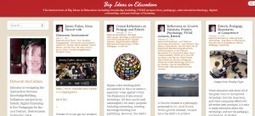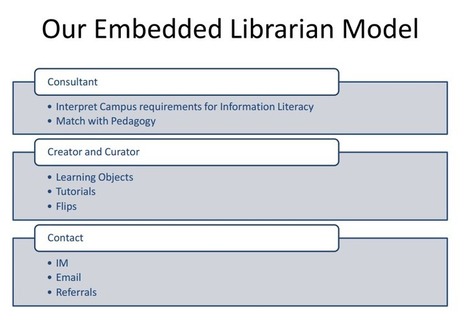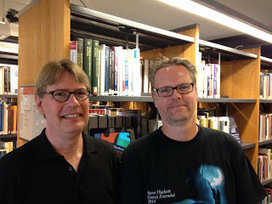Being flexible and responsive to students’ unique learning needs is a powerful skill in any teaching context, but it is perhaps especially valuable in one-shot library instruction, when a librarian has limited time with students and is often meeting them for the first time. Because librarians frequently enter the classroom with limited information about a class’s dynamics and its students’ current understandings, abilities, and interests, we often find ourselves needing to adapt in the moment of teaching more than we would if we had a more extensive connection to that class.
Research and publish the best content.
Get Started for FREE
Sign up with Facebook Sign up with X
I don't have a Facebook or a X account
Already have an account: Login
Literacy in a digital education world and peripheral issues.
Curated by
Elizabeth E Charles
 Your new post is loading... Your new post is loading...
 Your new post is loading... Your new post is loading...

SLS Guernsey's curator insight,
July 10, 2014 1:08 PM
This makes interesting reading. I think that both are important in their own way so you really should be teaching both. 
Maria João Loureiro's curator insight,
July 12, 2014 8:24 AM
Embora não esteja focado na escrita académica, tem pistas que podem ajudar, uma delas passa por "criar visualizações" do texto (que pode ser muito útil para quem tem estilos mais visuais se forem imagens). Junto a sugestão de fazer tabelas que ajudem a sintetizar as leituras e facilitem recuperar as fontes de informação e o seu cruzamento. . |
|















![LOEX [Library Orientation Exchange] Home | Information and digital literacy in education via the digital path | Scoop.it](https://img.scoop.it/yWUep6eaG7HRtyVb2q9VTjl72eJkfbmt4t8yenImKBVvK0kTmF0xjctABnaLJIm9)




